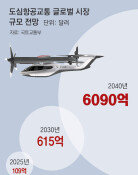[Editorial] Japans Domestic Investment
[Editorial] Japans Domestic Investment
Posted March. 30, 2006 07:58,
At a lecture in Korea a couple of days ago, Yukiko Hukagawa, a professor at Tokyo University, said, Strong investment and labor reform drove the Japanese economy to recovery. Korea should recognize this. The scholar also proudly said, Unlike Korean companies bent on foreign investment, Japanese firms focus on domestic capital spending. The growing privatization of Japans public sector has encouraged private investors and helped increase overall investment. Japans small government has given confidence to private investment, which in turn has led to job creation.
In contrast, Korea has seen a 17.7 percent hike in the number of government regulations from 6,820 in 1998 to 8,028 today. Public officials also grew in number by 22,000 from 2002, boosting labor costs by 3.6 trillion won compared to three years ago. Indeed, the incumbent government is increasingly meddling in the private sector.
Nevertheless, President Roh Moo-hyun has ignored the issue of the governments over-inflation and said that Korea being run by a big government is nonsense. His remarks cast a dark cloud as they seem to hint at continuous government restriction and intervention, let alone his poor awareness of reality. He is wrong if he thinks he can dismiss the fact that no country has achieved success by pursuing a bigger government and reducing the role of the market.
Local capital spending cannot grow in a government-imposed straitjacket. The growth rate of domestic facility investments dwindled from 8.4 percent in 2002 to 1.4 percent (2003), 1.4 percent (2004), 3.4 percent (2005), and to 1.2 percent in the first two months of this year.
Korean companies foreign direct investment jumped every year from 3.6 billion won in 2002 to 6.4 billion won in 2005. No wonder jobs are on the decrease as local firms stay away from domestic investment and move abroad.
Recent economic indices reflect this reality. Even exports, which have recouped losses from sluggish domestic consumption and weak investment so far, are suffering. As a result, February recorded a current account deficit of $760.7 million. Industrial output also went down 4.4 percent from January. Some critics warn a prolonged slump if the over-sized government continues to strangle corporations with its regulations. Recently, Professor Eisuke Sakakibara of Keio University also warned, In this era of global competition, firms in China and India will easily replace Korean companies leadership if they even hesitate a bit.







